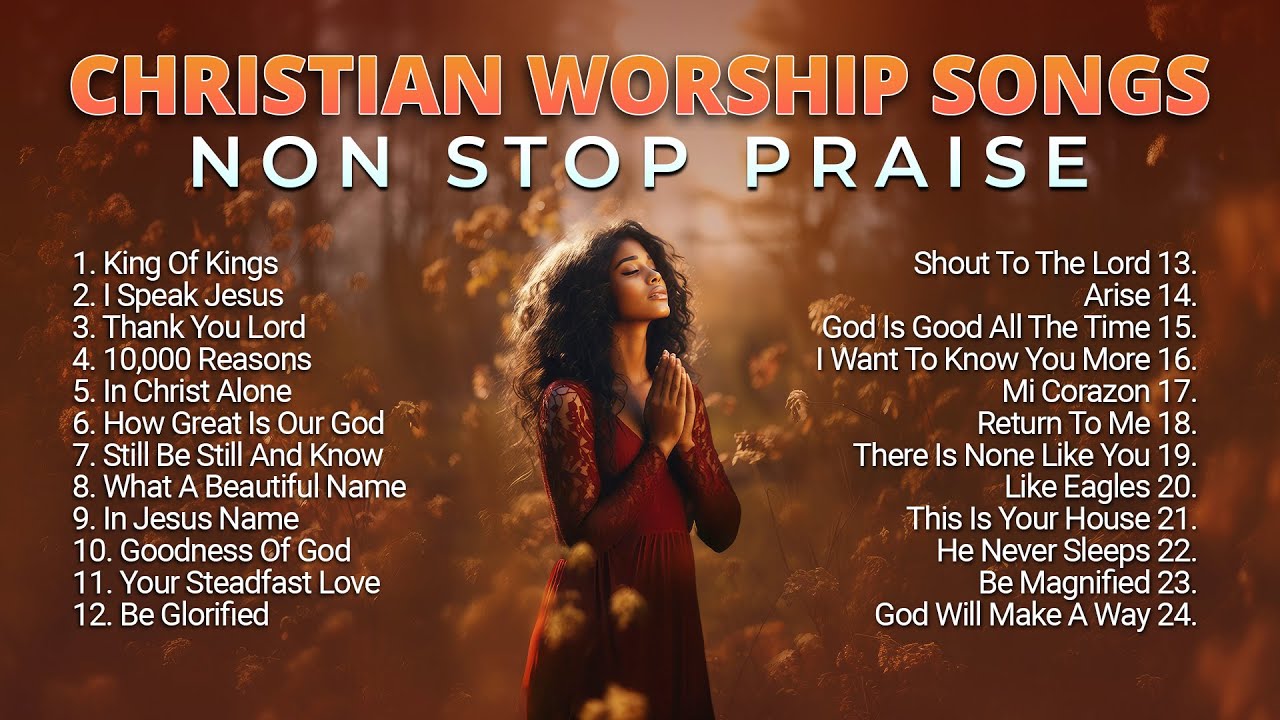In the realm of spiritual expression, praise and worship songs stand as pillars of connection between humanity and the divine. These melodious offerings, transcending mere lyrics and melodies, have the profound ability to uplift spirits, ignite faith, and foster a deep sense of connection with the sacred. In this article, we embark on a journey through the transformative power of praise and worship songs, exploring their significance, impact, and enduring resonance in the hearts of believers worldwide.
Table of Contents
ToggleThe Essence of Praise and Worship:
At the heart of praise and worship songs lies a profound essence – the celebration of faith, adoration, and reverence towards a higher power. Whether sung in grand cathedrals, humble chapels, or intimate gatherings, these songs serve as vessels for expressing gratitude, seeking solace, and communing with the divine. Through their emotive lyrics, captivating melodies, and stirring harmonies, praise and worship songs transcend language barriers and cultural divides, uniting believers in a shared expression of devotion and awe.
The Power of Melody and Lyrics:
Central to the impact of praise and worship songs are their melodies and lyrics, carefully crafted to evoke deep emotional responses and stir the soul. The gentle strumming of a guitar, the resonant chords of a piano, or the harmonious blend of voices create an atmosphere conducive to spiritual reflection and worship. Coupled with lyrics that speak of God’s love, grace, and redemption, these songs become vehicles for personal testimony, guiding believers through moments of joy, sorrow, doubt, and triumph.
Furthermore, the repetitive nature of many praise and worship songs serves to reinforce key spiritual truths and affirmations, embedding them deeply within the consciousness of worshippers. Whether declaring the majesty of creation, proclaiming victory over adversity, or seeking refuge in times of turmoil, these songs offer solace and strength, reminding believers of the enduring presence of divine love in their lives.
The Role in Spiritual Formation:
Beyond mere musical expression, praise and worship songs play a pivotal role in the spiritual formation of individuals and communities. From childhood hymns learned in Sunday school to contemporary worship anthems sung in megachurches, these songs shape the beliefs, values, and practices of believers at every stage of their spiritual journey. Through repetitive exposure to scriptural themes and theological concepts, worshippers internalize foundational truths and deepen their understanding of God’s character and purposes.
Moreover, the communal aspect of singing praise and worship songs fosters a sense of unity and belonging within religious communities. Whether congregants raise their voices in unison or bow their heads in silent reverence, the act of communal worship strengthens bonds of fellowship and solidarity, reinforcing the shared identity of believers as children of a loving and merciful Creator.
Impact on Emotional and Mental Well-being:
The transformative power of praise and worship songs extends beyond the realm of spirituality, exerting a profound impact on emotional and mental well-being. Numerous studies have demonstrated the therapeutic benefits of music in alleviating stress, anxiety, and depression, with praise and worship songs offering a unique avenue for spiritual solace and emotional release.
Indeed, the act of singing praises to God has been likened to a form of prayerful meditation, calming the mind, soothing the spirit, and uplifting the soul. Whether in moments of personal devotion or congregational worship, the melodic strains of these songs provide a sanctuary of peace and tranquility, offering respite from the pressures of daily life and reminding believers of the abiding presence of divine grace.
The Evolution of Worship Music:
As with any form of artistic expression, praise and worship music have evolved over time, reflecting changes in culture, theology, and musical preferences. From traditional hymns rooted in centuries-old liturgical traditions to contemporary worship songs infused with modern instrumentation and lyrical styles, the landscape of worship music is as diverse as the global body of believers it serves.
Yet, amid this diversity, certain timeless themes endure – the praise of God’s majesty, the proclamation of His faithfulness, and the invitation to enter into His presence with thanksgiving and praise. Whether sung in ancient cathedrals adorned with stained glass or in modern sanctuaries equipped with state-of-the-art sound systems, praise and worship songs continue to resonate with worshippers of all ages, cultures, and denominations, bridging the gap between heaven and earth in a symphony of divine adoration.
Conclusion:
Praise and worship songs stand as sacred expressions of faith, offering believers a pathway to encounter the divine in the midst of their everyday lives. Through their melodious melodies, uplifting lyrics, and transformative power, these songs transcend the boundaries of language and culture, uniting worshippers in a chorus of adoration and awe. As we lift our voices in praise and worship, may we be reminded of the enduring truth that music has the power to uplift, inspire, and transform our hearts, drawing us ever closer to the source of all love and light – the One worthy of all praise.



